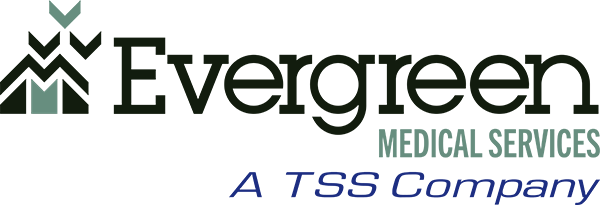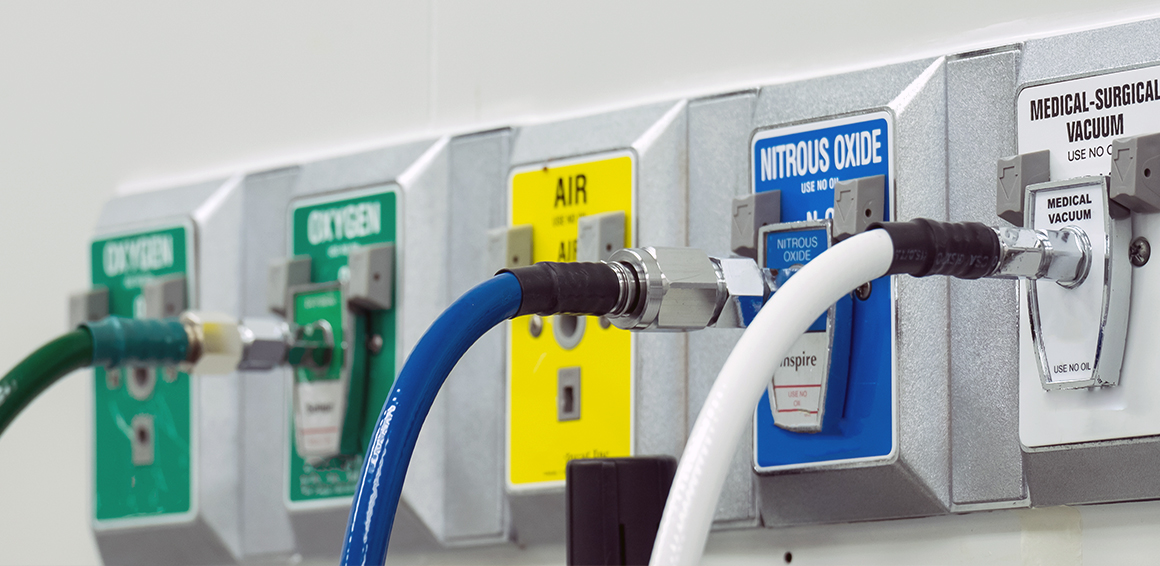Evergreen conducts annual medical gas system testing and inspection on time and without disrupting your facility’s day-to-day patient care and other important responsibilities. Our qualified technicians understand how to work in healthcare environments and have plenty of experience to back up their knowledge. With the requisite technical training, Evergreen techs perform annual medical gas inspections that improve your systems’ safety and regulatory compliance while ensuring that your equipment performs properly and efficiently.
Given how crucial this equipment is for ensuring proper patient care, annual medical gas system testing is essential. Not only does medical gas testing look for leaks and other issues that may affect performance, but it’s also required for regulatory compliance and mitigating liability concerns. When it comes to maintaining your medical gas system, annual testing should never be overlooked.
Understanding Medical Gas Regulations and Standards
Medical gas systems must meet strict standards from agencies like the NFPA, DNV, TJC, and CMS. One of the most important frameworks is NFPA 99, which outlines essential safety requirements for piped systems in healthcare facilities. These guidelines, along with specific NFPA 99 precautions, help facilities prevent hazards and maintain consistent system performance.
Following these regulations through routine medical gas annual testing and medical gas inspection helps ensure legal compliance, reduce liability, and improve overall patient safety. Certification and testing play a vital role in preventing leaks, contamination, or failure, making medical gas system compliance a critical part of facility operations.
The Process of Medical Gas Safety Audits
A medical gas safety audit is a thorough evaluation designed to verify the performance, compliance, and safety of your piped medical gas systems. These audits are a vital part of medical gas annual testing and help facilities maintain proper medical gas certification.
The audit process typically includes:
- Reviewing documentation: Assess previous test results, system drawings, maintenance logs, and compliance records.
- Visual inspection of system components: Check the physical condition of outlets, zone valves, alarms, and source supply equipment.
- Functionality testing: Confirm that master and area alarms respond correctly and that valves operate properly.
- Medical gas verification: Test for pressure accuracy, gas identity, and proper labeling across the medical gas system.
- Environmental monitoring: Evaluate air quality, including testing for dew point, particulate matter, and gaseous contaminants.
- Identifying deficiencies: Document any issues that impact system performance or violate code requirements.
- Risk evaluation and compliance reporting: Classify findings by severity and outline corrective actions to ensure compliance with NFPA 99 and other applicable standards.
Careful Testing of Piped Medical Gas Systems
Our medical gas testing service complies with The Joint Commission (TJC), National Fire Protection Association (NFPA), American Society of Sanitary Engineering (ASSE) and Compressed Gas Association (CGA) standards. We inspect and test the following:
- Master and area alarms
- Zone valves
- Patient outlets and inlets
- Source Supply equipment
- Emergency Oxygen Supply Connections (EOSC)
- Purity/contaminant testing for gaseous contaminants, medical air dew point and solid particulates
Reports and Documentation
After testing, we provide you with the comprehensive documentation that the Centers for Medicare & Medicaid Services and TJC require. You receive a report that includes a detailed equipment/component inventory listing each item’s manufacturer, model and system type; NFPA code references; clear inspection results showing every deficiency; recommended actions to correct deficiencies; and a clear distinction between items that require repair now versus issues that are grandfathered and need be addressed only during future renovations.
Medical Gas Equipment and Supplier Selection
Choosing high-quality equipment and a reliable provider is key to the long-term safety and efficiency of your medical gas services. The right partner ensures products meet certification standards and are compatible with your system.
Well-chosen suppliers help you stay compliant with medical gas certification requirements and support smooth annual medical gas inspection schedules. Their consistency directly affects the safety and performance of your medical gas system.
Are Annual Medical Gas Systems Testing & Inspections Required?
NFPA requires regular inspections and testing for piped medical gas systems. The NFPA 99 is the most respected document in the United States with regards to these procedures, as all 50 states have adopted it. As a result, facilities throughout the country typically adhere to the recommendation for annual checkups.
CMS and TJC require a risk assessment using codes and manufacturer recommendations in order to determine the frequency of testing and inspections.
To learn more about medical gas testing and other frequently asked questions, visit our FAQ page.

